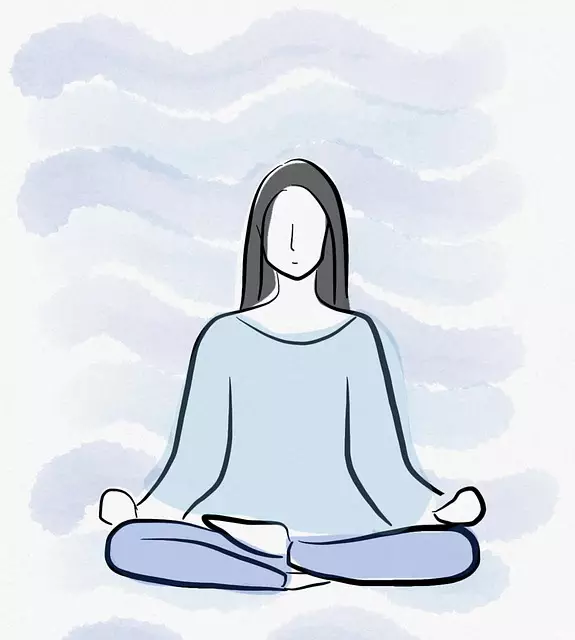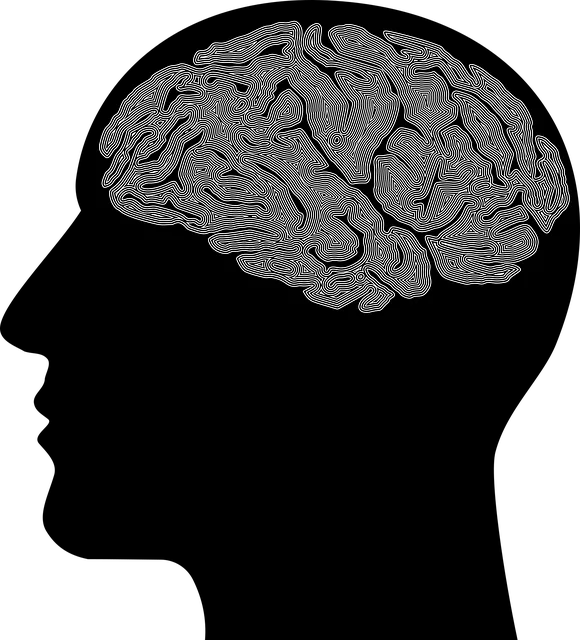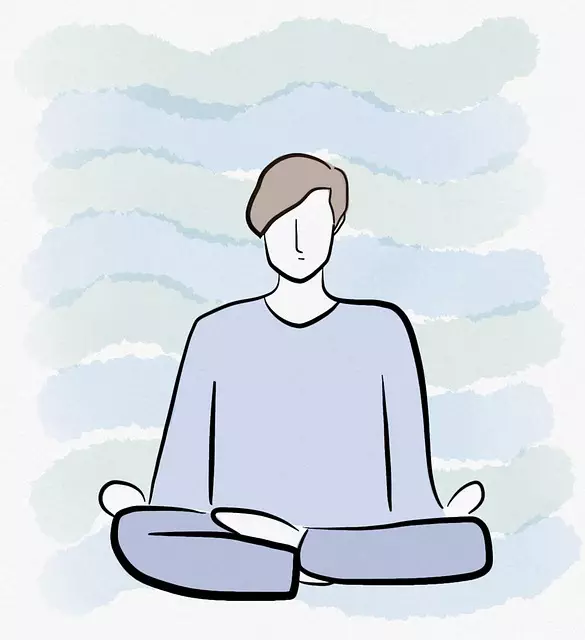Anxiety, characterized by physical and mental symptoms like rapid heartbeat and intrusive thoughts, is a common yet disruptive experience. Lone Tree Kaiser Permanente behavioral health number offers comprehensive anxiety management strategies, including Cognitive Behavioral Therapy (CBT), mindfulness practices, physical exercises, support groups, and conflict resolution techniques. CBT, backed by evidence, guides clients to identify and change negative thought patterns, promoting emotional wellness and preventing depression. Mindfulness meditation, focused on present-moment awareness, enhances emotional regulation and reduces anxiety symptoms. Holistic management involves support networks and professional guidance, with tailored approaches available through Lone Tree Kaiser Permanente's behavioral health services.
Anxiety is a common yet overwhelming experience that affects millions worldwide. If you’re feeling distressed or overwhelmed by persistent worry, it’s not alone—Lone Tree Kaiser Permanente behavioral health services are here to help. This comprehensive guide explores various anxiety management techniques, from understanding the root causes and recognizing signs through professional therapies like Cognitive Behavioral Therapy (CBT). Discover mindfulness practices, lifestyle adjustments, and the power of support networks for a healthier mind.
- Understanding Anxiety: Recognizing the Signs and Symptoms
- Cognitive Behavioral Therapy: A Powerful Tool for Managing Anxiety
- Mindfulness and Meditation Techniques to Calm Your Mind
- Lifestyle Changes for Better Mental Well-being: Exercise, Diet, and Sleep
- Reaching Out: The Role of Support Networks and Professional Help
Understanding Anxiety: Recognizing the Signs and Symptoms

Anxiety is a common experience that can manifest in various ways, and recognizing its signs is the first step towards managing it effectively. At Lone Tree Kaiser Permanente behavioral health number, we often emphasize the importance of understanding anxiety as a natural response to stress or perceived threats, but when it becomes overwhelming and persistent, it can significantly impact daily life. Symptoms may include rapid heartbeat, sweating, trembling, difficulty breathing, restlessness, irritability, and even physical ailments like headaches or stomach aches. These sensations are often accompanied by intrusive thoughts, worry, or a sense of dread, which can make focusing or relaxing challenging.
Many individuals struggle with anxiety in different forms, such as generalized anxiety disorder, panic attacks, or social anxiety. The good news is that there are numerous strategies available to help manage these symptoms. From cognitive-behavioral therapy (CBT) and mindfulness practices to physical exercises and support groups like Trauma Support Services, various techniques can provide much-needed Anxiety Relief. Conflict Resolution Techniques can also play a significant role in reducing the frequency and intensity of anxious episodes by teaching individuals how to navigate challenging situations with greater calmness and clarity.
Cognitive Behavioral Therapy: A Powerful Tool for Managing Anxiety

Cognitive Behavioral Therapy (CBT) has emerged as a highly effective tool in managing anxiety disorders, making it a popular choice among mental health professionals and clients alike. This evidence-based approach focuses on identifying and changing negative thought patterns and behaviors that contribute to anxiety, offering a practical way to gain control over one’s emotional well-being. CBT works by helping individuals understand how their thoughts influence their emotions and subsequent actions, enabling them to challenge and replace irrational beliefs with more realistic and positive ones.
Lone Tree Kaiser Permanente behavioral health services provide access to specialized therapists who can guide clients through this process. Through structured sessions, patients learn emotional wellness promotion techniques tailored to their specific needs. By addressing underlying issues and developing coping strategies, CBT not only aids in anxiety management but also serves as a valuable prevention method for depression, as it empowers individuals to face challenging situations with enhanced mental resilience.
Mindfulness and Meditation Techniques to Calm Your Mind

In the quest to manage anxiety, mindfulness and meditation techniques have emerged as powerful tools offered by Lone Tree Kaiser Permanente behavioral health services. These practices encourage individuals to cultivate present-moment awareness, a skill that can significantly enhance emotional regulation and overall well-being. By focusing on your breath, bodily sensations, and thoughts without judgment, you can disrupt the cycle of anxious rumination. This process, grounded in Mind Over Matter principles, allows for a deeper understanding of your emotional healing processes and promotes a sense of calm.
Meditation, as an integral part of these techniques, helps to quiet the mind and reduce the intensity of anxiety symptoms. Regular meditation practice can lead to positive changes in brain function, promoting emotional balance and resilience. When faced with anxious thoughts, mindful breathing exercises and meditation provide a safe space to observe without reacting impulsively, fostering better emotional control and a greater sense of inner peace.
Lifestyle Changes for Better Mental Well-being: Exercise, Diet, and Sleep

Lifestyle changes play a crucial role in managing and enhancing mental wellness, as highlighted by the Lone Tree Kaiser Permanente behavioral health number. Regular exercise is a powerful tool to combat anxiety; it stimulates the release of endorphins, often referred to as ‘feel-good’ hormones, which can significantly improve mood and reduce stress levels. Incorporating even moderate physical activity into your daily routine can make a noticeable difference in managing anxiety symptoms.
Diet also contributes to mental wellness. A balanced diet rich in nutrients supports brain health and overall well-being. Foods containing omega-3 fatty acids, vitamins B and D, and magnesium are particularly beneficial for managing anxiety. Moreover, staying hydrated is essential; adequate water intake can help regulate mood and energy levels. In addition to these practices, prioritizing sleep is vital. Aim for 7-9 hours of quality sleep each night, as it allows the body and mind to recover, promoting better mental health and a more positive thinking mindset.
Reaching Out: The Role of Support Networks and Professional Help

Anxiety management often involves building a strong support network and seeking professional guidance when needed. Reaching out to loved ones, friends, or family can significantly help in managing anxiety. Sharing concerns with trusted individuals provides a sense of relief and allows for emotional support during challenging times. Support networks play a vital role in offering different perspectives, helping to challenge negative thoughts, and providing reassurance.
For more specialized assistance, Lone Tree Kaiser Permanente behavioral health services provide professional help tailored to individual needs. Their expertise includes various therapeutic approaches, such as cognitive-behavioral therapy, which is effective in treating anxiety disorders. Additionally, they offer programs focused on self-esteem improvement and social skills training, addressing underlying issues that contribute to anxiety. Public awareness campaigns development can also facilitate open conversations about mental health, reducing the stigma associated with seeking help.
Anxiety management is a multifaceted journey, as demonstrated by our exploration of understanding anxiety, cognitive behavioral therapy, mindfulness, lifestyle changes, and support networks. By recognizing signs and symptoms, seeking professional help like that offered by Lone Tree Kaiser Permanente behavioral health services, and adopting evidence-based techniques, individuals can effectively navigate their anxiety. Remember, managing anxiety is a process, and with the right tools and support, achieving mental well-being is within reach for everyone.



